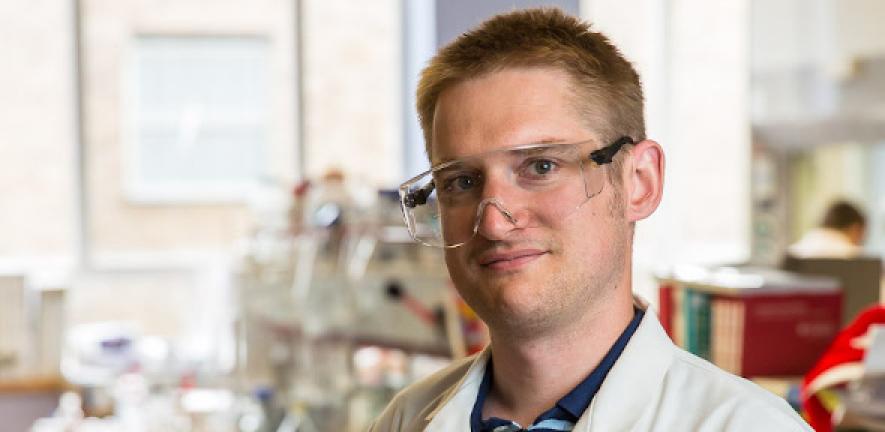
Phipps started his independent research career as a Royal Society University Research Fellow in 2014. He says: “The Royal Society gave me a fantastic opportunity to start my research career here, which is truly enabling. The support from the Royal Society has been absolutely fantastic: they’ve provided several PhD studentships and also funds to get my research going. Truly they are sponsoring fundamental science in the UK, helping to make the UK a great place to start an academic career.”
However, Royal Society fellowships are of a finite duration, so recently Phipps had the opportunity to apply for the lectureship position. He says: “I’m very pleased to have been recognised with this tenured position, which will give me the stability to continue with my long-term research goals.”
Phipps and his synthetic research group are perhaps best known for their work in using weaker, non-covalent interactions to control selectivity, rather than more traditional approaches based on steric repulsion. “Fundamentally, it’s well grounded in the mechanisms by which enzymes perform catalysis, but applying these principles to real challenges in synthetic chemistry using small molecule catalysts is relatively recent,” says Phipps. “We are not the only ones who are investigating this strategy, but we are trying to push the limits in terms where these interactions can be applied, in areas that have not been looked at before.”
Phipps emphasises that the real goal of his group is to solve problems. “Broadly, we are trying to solve problems in synthetic chemistry – whatever work we are doing, it always comes from a problem we are trying to solve.”
For example, using non-covalent catalysis Phipps and his colleagues developed a modification to the well-known Minisci reaction, which for the first time enabled the reaction to occur with control of enantioselectivity. This is crucial when developing drug molecules, where the right-handed form of a molecule might produce the desired therapeutic effect, while the left-handed form could cause dangerous side effects.
Phipps’s 16-strong research group is also investigating different approaches to using ligands to control regioselectivity or site-selectivity in commonly used transition metal reactions, which could make such reactions not only more economical but also environmentally sustainable.
“I think that in the coming years, this approach will become more and more prominent, but we have to understand how to design the catalysts and work with the systems. I always try to keep a focus on genuine synthetic problems,” says Phipps. Perhaps as proof of this, in 2019 Phipps was awarded the Royal Society of Chemistry Harrison-Meldola Memorial Prize “for inventive research on the application of non-covalent catalysis to selectivity in synthetic organic chemistry.”

